These solids must be removed for further processing / further use of the respective chemical medium. The solids-free / poor medium is discharged in the thickener in an overflow trench.
The medium itself is kept in motion by a slow-running agitator (rake arm). Thickeners are usually made of concrete or steel. Depending on the process, the temperature of the medium treated in the thickener can reach up to approx. 100 °C.
In the hydrometallurgical processing of ores, several thickeners are often operated in countercurrent decantation (CCD) to separate metal salt solutions from the precipitate.
Due to the process, the steel or concrete structure must therefore be protected against several stresses:
- Chemically resistant to the respective treated medium
- Abrasion resistant due to solids in the medium
- Thermally resistant
The use of an acid resistant lining must fulfil several criteria here.
Depending on the stress, a chemically resistant sealing without a further protective layer, e. g. rubber coating or polyurethane coating, is not sufficient.
In order to protect the aforementioned sealing against thermal and / or abrasive stress, an additional ceramic lining with acid resistant tiles or bricks may be required. Therefore, acid resistant linings are often used.
The thickness of the required ceramic protective layer may vary depending on the substrate. For example, it may need to be thicker for concrete substrates because of their heat conducting properties. The required thickness can be determined by a heat transfer calculation.
The ceramic lining is made using suitable acid resistant mortars.
Another aspect for dimensioning the lining thickness can be the size and geometry of the thickener. Thicker linings are generally used for larger and higher thickeners than in small and shallow thickeners. Static aspects also play a role here.
The brick formats to be selected must be adapted to the geometry of the thickener. For example, in addition to standard bricks, special cone bricks and circle bricks are also used.
The abrasive stress caused by the agitator is rather low. However, thickeners may occasionally be emptied and the sludge left behind mechanically removed. Steuler has a large selection of standard formats available here.

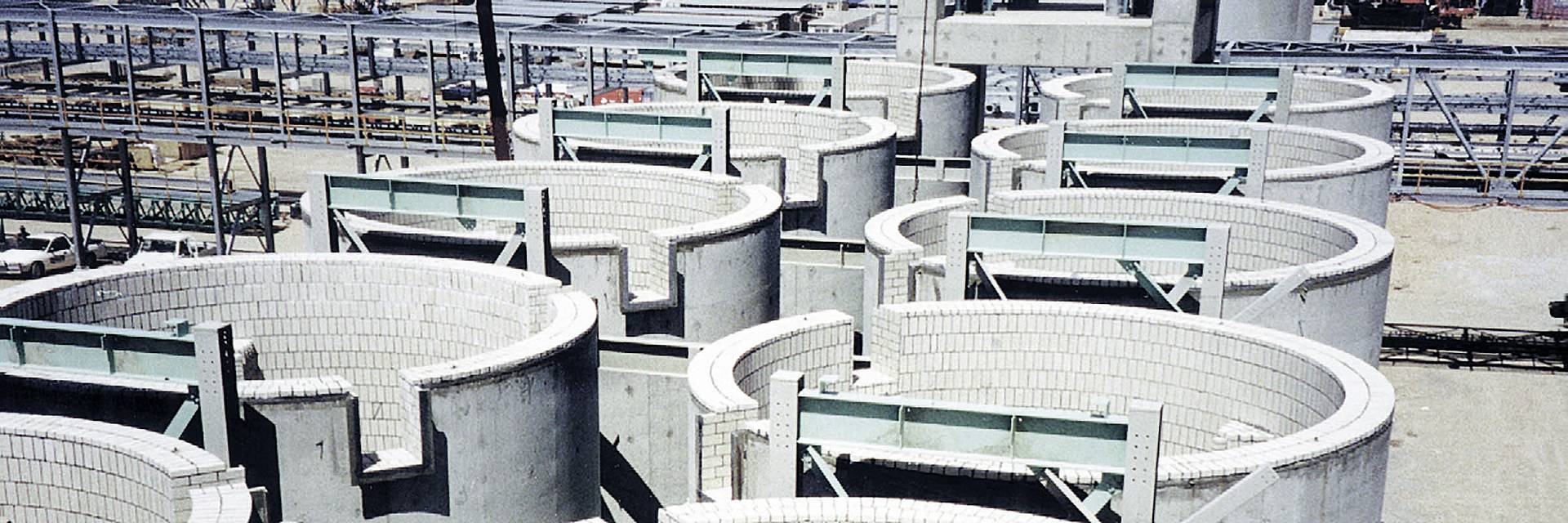

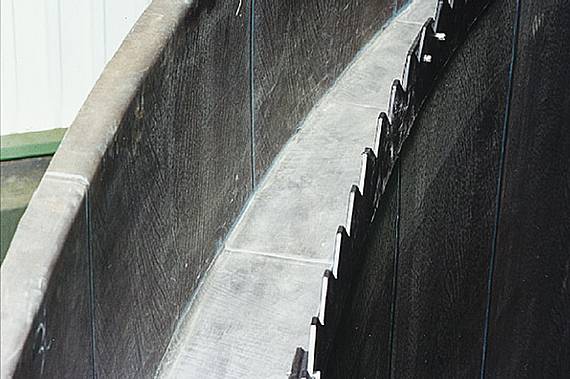
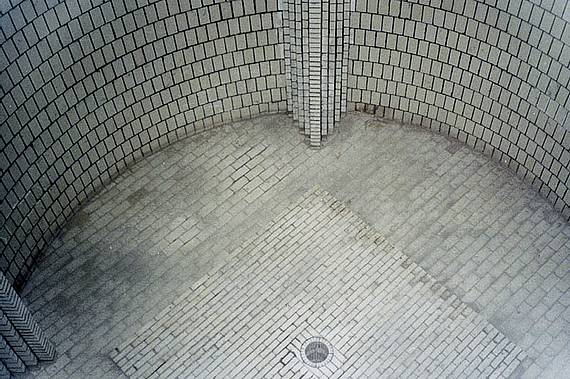
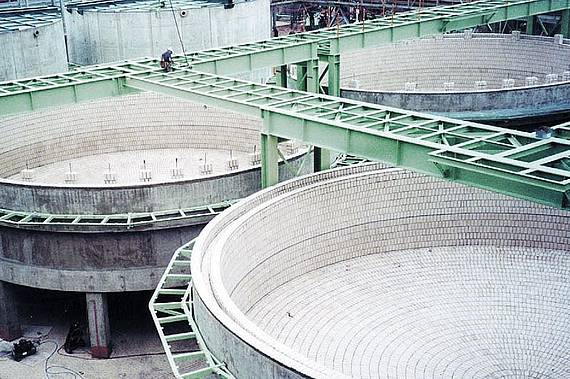
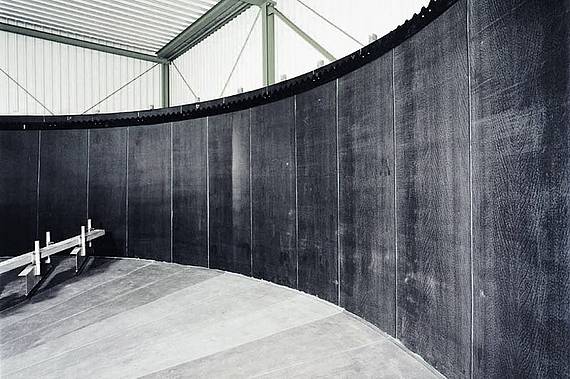
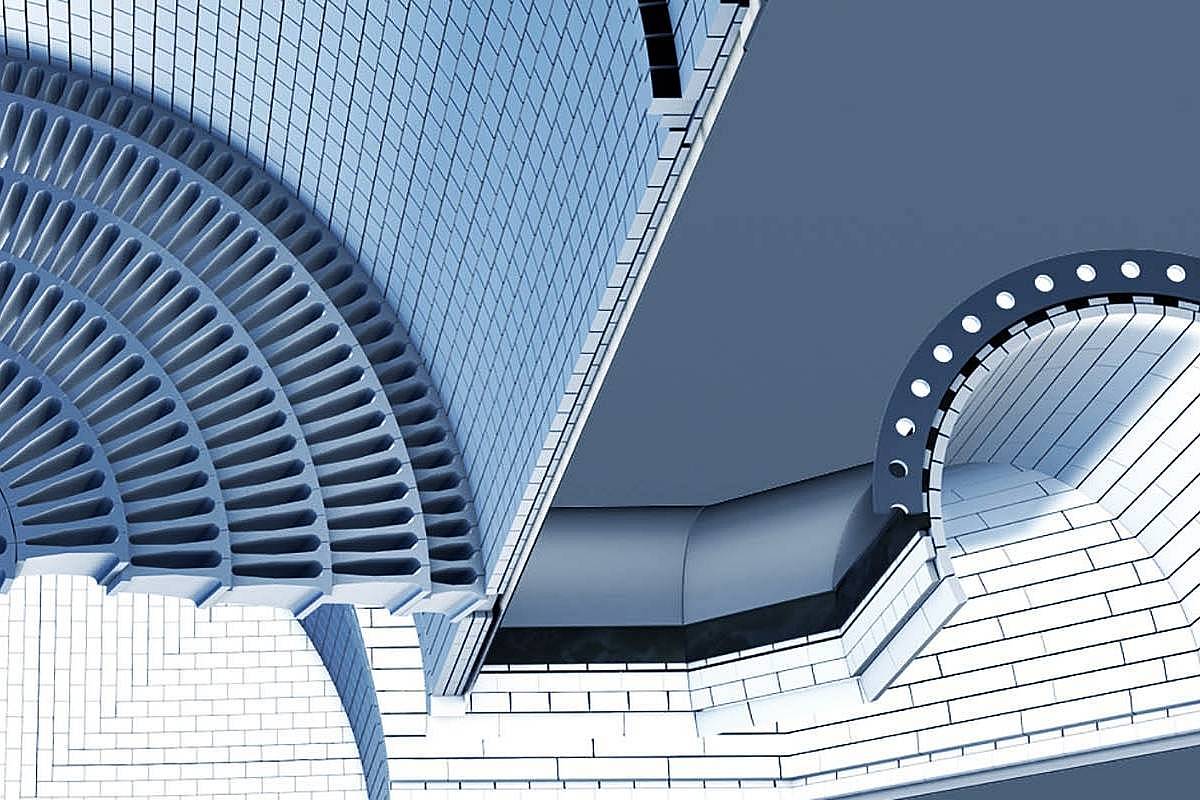
![[EN] [EN]](/fileadmin/_processed_/4/6/csm_produkte-spl-gummierungen-keyvisual_ee5b997c02.jpg)
![[EN] [EN]](/fileadmin/steuler-linings/images/Services/services-verteiler-teaser.jpg)